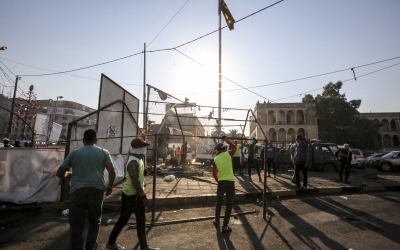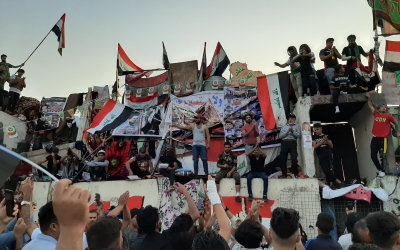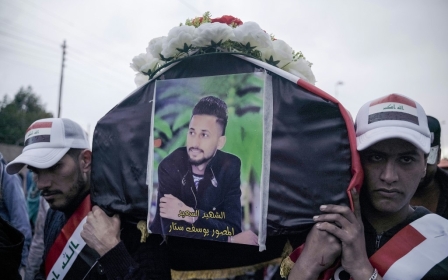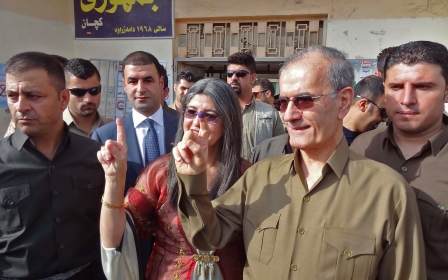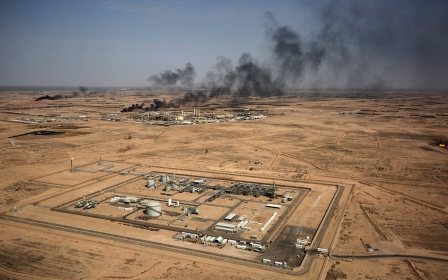Violent clashes break out in Baghdad, Basra and other Iraqi cities
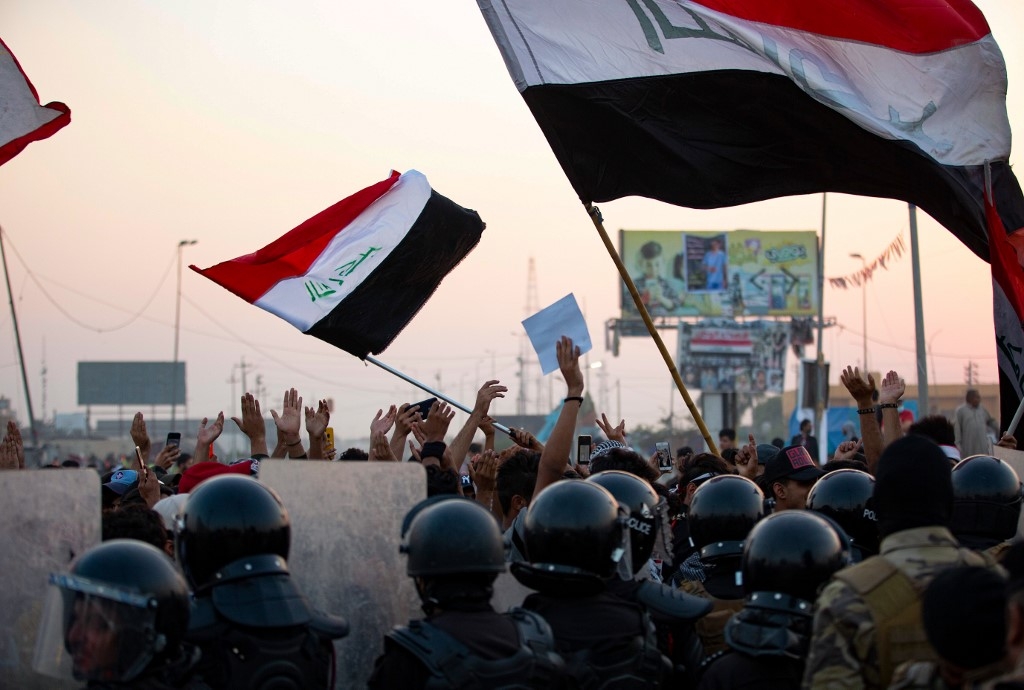
Anti-government protests broke out into violent clashes in several Iraqi cities on Sunday, including in the capital Baghdad and the southern port city of Basra.
In Basra, police officers and troops fired into the air to disperse around 500 protesters, who had been throwing rocks, AFP reported.
Meanwhile, a few hundred young Iraqis returned to Baghdad's Tahrir Square on Sunday for a flash protest, clashing briefly with security forces. Early on Saturday morning, security forces had entered Tahrir Square, the centre of anti-government protests in the capital, to clear the tents and open the previously blocked off roads.
The government said Al-Jamhuriya Bridge, which connects the square with the heavily fortified Green Zone - the location of the Iraqi parliament and numerous diplomatic buildings - had been opened for the first time since it had been shut at the beginning of protests in October 2019.
Some of the protesters had welcomed the clearing of the camp, claiming that it had been infiltrated by elements trying to undermine the demonstrations with violence and disruption, and that clearing it was the only way to root them out.
'Rest break'
Noor al-Taie, a student activist, told Middle East Eye that what was taking place was a "rest break" and not the end of the protests.
“We decided to withdraw from the square and leave the tents temporarily to help the security forces arrest the infiltrators, those who killed and wounded the protesters - but we were surprised when in the early morning the security forces, along with top military officials, entered Tahrir Square and ordered the destruction of the tents and arrested protesters while they were sleeping," she said.
'If protest in Tahrir ends, it continues in other provinces of Basra, Nasiriyah, Babil, Karbala'
- Noor al-Taie, student activist
Nevertheless, she said, the demonstrators would return soon "in a more massive movement".
"If protest in Tahrir ends, it continues in other provinces of Basra, Nasiriyah, Babil, Karbala," she said.
Further south in Hilla, hundreds of students marched with banners decrying the killing and kidnapping of activists in recent months.
"We'll stay here, for the blood of our martyrs and the love of our country," said Abrar Ahmed, a student demonstrator in the city. "It's our revolution and we must continue it, as not a single one of our demands were met."
A similar protest took place in the town of Kut, where dozens turned out to demand justice for some 600 demonstrators who have been killed in protest-related violence over the past year.
Over 600 killed
Unprecedented demonstrations had erupted across Baghdad and Iraq's Shia-majority south in October 2019, as protesters called for jobs, basic services, a total overhaul of the ruling class and an end to corruption.
Since the beginning of the demonstrations in October 2019, more than 600 people had been killed at the hands of the security forces and paramilitary groups. There had been virtually no accountability for those deaths.
Two more activists had been gunned down in Kut in recent days.
The "October Revolution" marked its one-year anniversary a week ago, with thousands hitting the streets of southern cities and the capital.
But authorities swiftly reinstated calm, deploying in large numbers in the squares and road junctions that were once the hot spots of the anti-government rallies.
Abdallah Ahmed, another student protesting in Hilla on Sunday, insisted that the movement was far from over.
"We're not commemorating the revolution - we're continuing it," he had told AFP.
In the southern flashpoint city of Nasiriyah, demonstrators torched tyres on a main highway in a proest against unemployment and poor public services.
Iraq is one of the most oil-rich countries in the world but has suffered chronic water and power shortages for decades.
'Our revolution is an idea, and ideas never die'
Politicians have warned that it is very unlikely that next June's elections will go ahead as planned.
Reform of the election law has long been a pillar of the anti-government protesters' demands, but any reform faces tough resistance from the parliamentary parties, which fear losing the power and influence they have accrued since 2003.
An economic crisis and a collapse in oil prices have also put major pressure on the country. Combined with the impact of the coronavirus pandemic, which has killed more than 10,000 people, these have helped to drive the poverty rate in Iraq up to its present 40 percent.
Despite, and in part because of, these pressures, demonstrators promised to keep pushing ahead with their demands.
"Our revolution never ends. Revolution is not a tent or square. Our revolution is an idea, and ideas never die," Noor al-Taie, the student activist in Baghdad, said.
Middle East Eye propose une couverture et une analyse indépendantes et incomparables du Moyen-Orient, de l’Afrique du Nord et d’autres régions du monde. Pour en savoir plus sur la reprise de ce contenu et les frais qui s’appliquent, veuillez remplir ce formulaire [en anglais]. Pour en savoir plus sur MEE, cliquez ici [en anglais].


